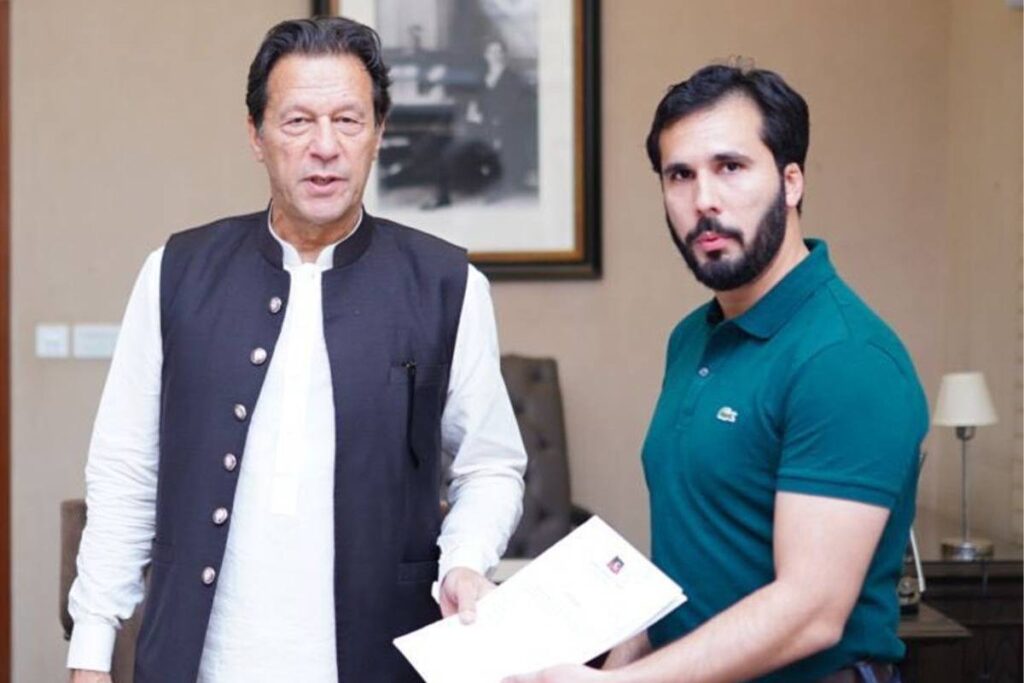Imran Khan’s Nephew, Hassaan Niazi, Faces Military Trial: A Closer Look

Imran Khan's Nephew, Hassaan Niazi, Faces Military Trial A Closer Look
Introduction
In a significant development that has garnered widespread attention, Hassaan Niazi, the nephew of Pakistan’s Prime Minister Imran Khan, has been handed over to military authorities for trial. The Lahore High Court (LHC) was informed of this decision, sparking debates and discussions across the nation.
This article delves into the details surrounding this case, examining the legal implications, public reactions, and the broader context within which the trial is taking place.
The Legal Framework
The decision to hand over Hassaan Niazi to military authorities for trial has raised questions about the legal framework underpinning such actions. Pakistan’s legal system operates on a dual-track structure, with civilian courts handling most cases while military courts deal with offenses related to national security and terrorism. The transfer of a civilian to military jurisdiction demands a careful evaluation of the circumstances to ensure due process is maintained.
According to reports, Niazi’s case is related to alleged activities that pose a threat to national security. This invokes the military’s jurisdiction, highlighting the delicate balance between safeguarding the nation and upholding individual rights. The LHC’s role in overseeing the decision is crucial in ensuring a fair trial for Niazi and maintaining public confidence in the legal system.
Public Reactions and Controversies
The news of Hassaan Niazi’s transfer to military trial has sparked a flurry of reactions from the public, media, and legal experts. While some individuals express concern over potential human rights violations, others view it as a necessary step to combat security threats. It is imperative to recognize that Pakistan has a history of grappling with terrorism and insurgency, which has prompted the establishment of military courts to address these specific challenges.
However, controversies arise when civilian individuals, especially those with political affiliations, are subject to military jurisdiction. Critics argue that such cases could be exploited for political gain, undermining the transparency and fairness of the legal process. Striking the right balance between national security and individual rights is an ongoing challenge for countries around the world, including Pakistan.
Transparency and Accountability
One of the key concerns surrounding Niazi’s trial is the need for transparency and accountability throughout the legal proceedings. It is essential for the public to have confidence that the trial will be conducted impartially, adhering to the principles of justice. Clear communication and updates from both the military and civilian authorities can help alleviate doubts and ensure that due process is maintained.
The Role of the Lahore High Court
The Lahore High Court’s oversight of the decision to transfer Hassaan Niazi to military trial is pivotal in upholding the rule of law. The court’s responsibility includes ensuring that the legal process is fair, transparent, and free from political influence. As the case unfolds, the LHC’s active involvement will contribute to a comprehensive understanding of the situation, facilitating informed public discourse.
Conclusion
The decision to hand over Hassaan Niazi to military authorities for trial has sparked debates that highlight the complex interplay between national security, individual rights, and legal processes. As the case moves forward, it is crucial for Pakistan’s legal system, particularly the Lahore High Court, to ensure transparency, fairness, and accountability. Striking the right balance between safeguarding the nation and upholding the rule of law is a challenge that demands careful consideration and adherence to established legal principles.
For More Related Articles Browse Our Website Blogster.pk
For social Connection You can also Visit and follow our Social media Platforms
Facebook , Instagram, Linkedin, Pinterest, Quora, Twitter, Youtube.






